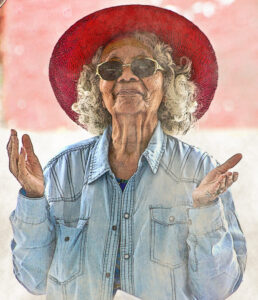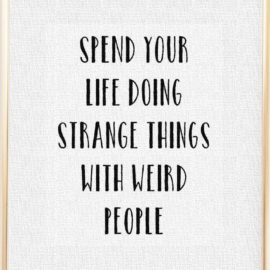I was talking about hot flashes recently with some of my peers on the wellness side of things here at the Crossing. It was an interesting discussion, but it definitely revealed that there’s more than a little misinformation about hot flashes and night sweats out there. And that helped me remember that I was overdue in checking up on the latest research on vasomotor symptoms, which is the current umbrella term for the condition.
So, while the repairs and renovation were happening to my home this past month, I used some of the time to check in with some experts on the topic over the last few weeks. And, since I know everyone is busy with end-of-summer and school season stuff, I’m cutting what I’ve got down to the bones to give you a “Fast 5″ Q&A about hot flashes.
1. What are hot flashes, anyway?
According to Tania Lugo and Maggie Tetrokalashvili, researchers at the Nassau University Medical Center, hot flashes and the nocturnal version called “night sweats” are vasomotor symptoms, which means they occur due to constriction or dilation of the blood vessels. In menopausal women, this is usually caused by abrupt changes in the level of estrogen in the blood, but it’s still unclear exactly what role it plays. However, hot flashes aren’t limited to menopausal women (more on that below).
2. How do I know if I’m having a hot flash?
- There is no warm-up. They come on suddenly.
- The heat isn’t felt from the outside. It comes from within.
- They’re usually felt on the chest, neck, and face, and sometimes are followed by sweating.
- They are uncomfortable enough to disrupt sleep.
- They are sometimes accompanied by anxiety, and heart palpitations in some cases.
3. Aren’t hot flashes just an “old lady” thing?
Alas, no they are not. Cancer patients and pregnant women, to name just two, can also suffer hot flashes. Also, low vitamin D and calcium levels can cause them in teens.
4. Is there a cure for hot flashes?
Not yet, but science may be getting closer. Researchers recently identified a group of neurones in the brain’s hypothalamus that may be responsible for the “malfunction.” Currently, a drug that blocks the effects of these neurones is currently being reviewed by the U.S. Food and Drug Administration. If approved, could offer a non-hormonal treatment option as early as this year (though they really ought to be getting on with it by now, eh?).
5. Is there anything to be done about hot flashes in the meantime?
Well, let’s just start with hormone replacement therapy (HRT), since that’s probably the best known treatment. Hormone therapy attempts to stabilize the levels of estrogen and progesterone in a (peri)menopausal woman’s body. And this appears to be an effective treatment for hot flashes — in women who are able to use it.
Unfortunately there is a long, sad list of health risks associated with HRT. These include elevated risks of experiencing:
- heart attack
- stroke
- blood clots
- breast cancer
- gallbladder disease
- dementia
If you’re considering hormone replacement therapy to treat hot flashes or other menopause symptoms, consult a qualified health care professional to discuss your risk profile.
Interestingly, according to the National Institute on Aging, the U.S. Food and Drug Administration has approved the use of paroxetine to treat hot flashes. Paroxetine is a selective serotonin reuptake inhibitor, better known as an antidepressant. Medical researchers are also looking at other antidepressants for off-label use.
This use of SSRIs in treating vasomotor symptoms generally requires a much lower dose of the drug than treatment for depression.
Other treatments involve the usual lifestyle changes that involve quitting caffeine, nicotine, alcohol and spicy foods. Layer your bedding. Use fans at night — even if you’re usually cold? Oh and of course: lose weight.
No wonder so many women choose HRT instead, eh?
The American College of Obstetrics and Gynecology also recommends what they “integrative medical practices,” or what we used to call “complementary therapies.” Along with changes in diet, practitioners recommend trying acupuncture, yoga, reflexology, and even hypnosis to help control vasomotor symptoms.
Do hot flashes or other symptoms of menopause interfere with your stitching? What remedies have you found that you’d like to share with your fellow Grimal-Kin? 😄 I’m always on the hunt for complementary therapies to help out with hot flashes particularly, and I know I’m not alone! Let your fellow stitchy sisters know what works for you by leaving a comment below!
- Too Old for Snapchat Too Young for LifeAlert - November 2, 2023
- Fast 5: Ways to Destress Yourself with Cross Stitch! - October 31, 2023
- October 2023 is Menopause Awareness Month! - October 5, 2023




